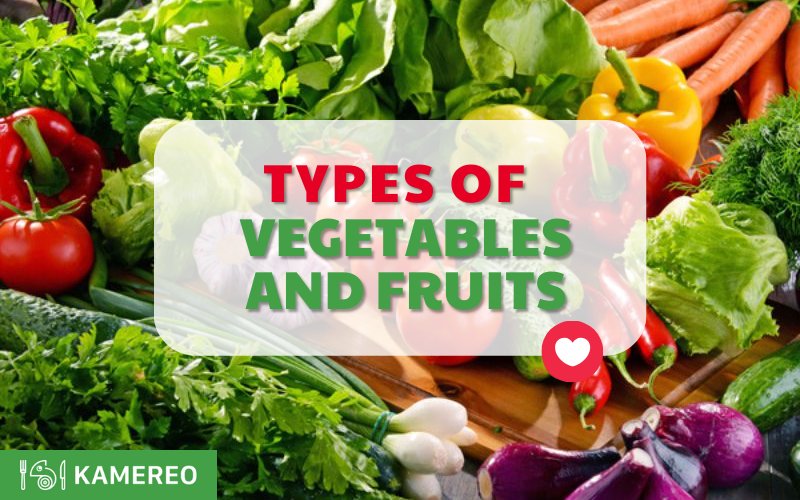According to Healthline, vegetables and fruits are a crucial source of fiber, vitamins, and essential antioxidants for a healthy diet. While most of these products are beneficial for health, some are highly regarded for containing more useful nutrients. Explore Kamereo’s list of types of vegetables and fruits that nutrition experts recommend adding to your weekly diet.
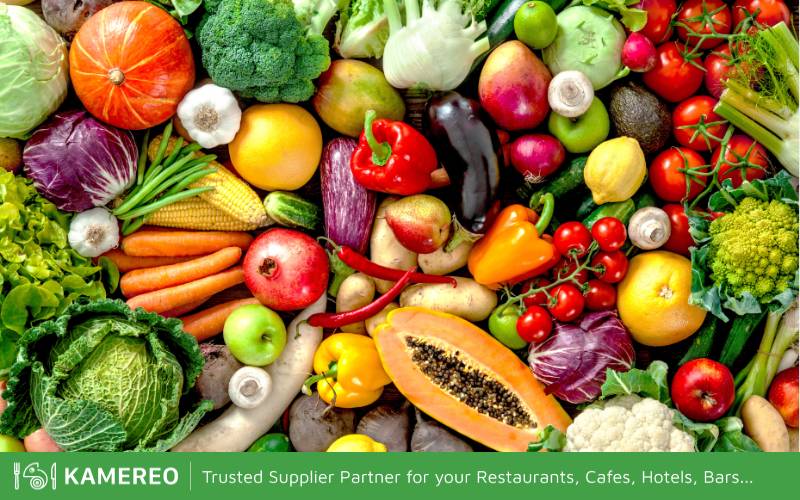
Table of Contents
Cucumber
Cucumber has a high water content, supports hydration, cools the body, and prevents constipation. In particular, the vitamin C in this fruit not only boosts the immune system but also has antioxidant effects and supports collagen production.
Additionally, cucumbers contain vitamin K, supporting blood clotting and the formation of strong bones and teeth. This food also contains magnesium, playing a crucial role in regulating blood pressure, reducing stress, and improving sleep quality. Meanwhile, potassium in cucumbers helps maintain heart rhythm, blood pressure, and kidney function.
In addition to the above nutrients, cucumbers also provide a variety of other vitamins and minerals such as vitamin A, B1, B2, B3, B5, B6, iron, calcium, phosphorus, creating a diverse source of nutrients. This makes this vegetable a good choice to supplement your daily diet.
You can enjoy fresh cucumbers or prepare them in dishes such as salads, soups, stir-fries, etc. However, individuals with sensitive constitutions should be cautious when adding cucumbers to their diet as they may cause allergies and digestive disorders.
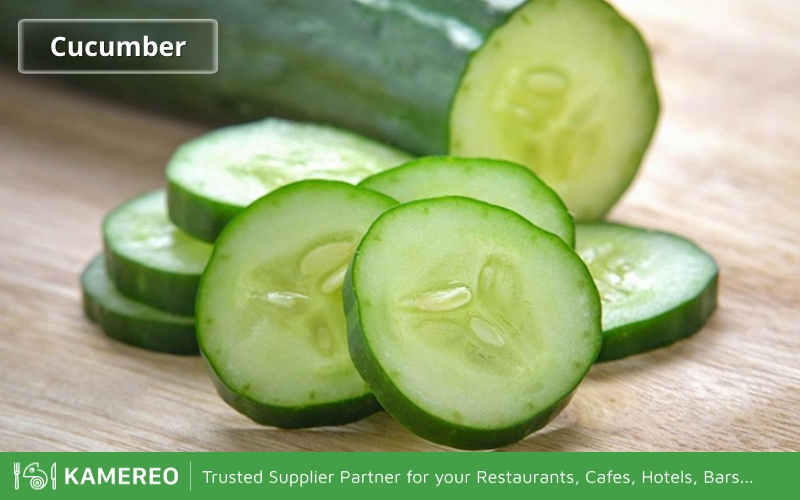
Carrot
Eat This, Not That – a guide to American diets – emphasizes that adults should consume a variety of red and orange-colored vegetables regularly, with about 5 and a half cups per week (1). Among them, carrots are a crucial source of vitamin A in the form of carotenoids and vitamin C. These nutrients play an essential role in maintaining vision while contributing to the overall health of the heart, lungs, and other organs.
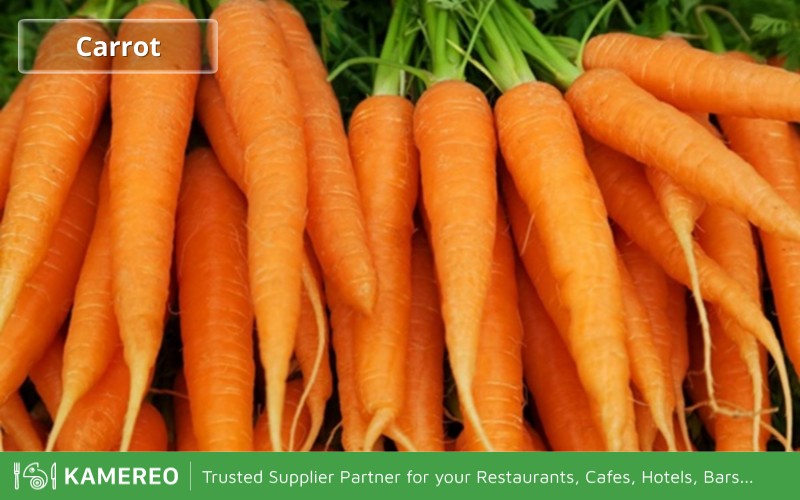
Tomato
When it comes to red-orange-colored vegetables and fruits, tomatoes cannot be overlooked. This fruit should be consumed regularly because it contains a high amount of the phytonutrient lycopene, which is associated with protecting the prostate and reducing the risk of colorectal cancer.
Moreover, cooking tomatoes in a cast-iron skillet is a good choice to maximize the benefits of lycopene. This not only increases the concentration of lycopene but also enhances the iron content in the dish.
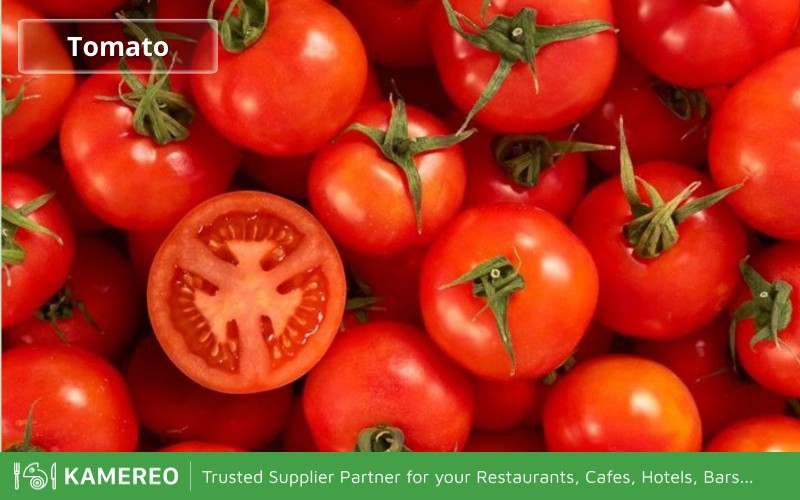
Pea
Pea are a distinctive type of legume. According to nutrition expert Gabrielle McPherson, this food has a high protein content and provides a lot of fiber. One cup of pea provides over 25% of the daily fiber requirement and contains 8g of plant-based protein.
Additionally, a cup of lentils can supply nearly 100% of the daily requirement for vitamin C, as well as about 10% of the daily needs for iron, vitamin B6, magnesium, and potassium. This makes lentils a diverse and useful source of nutrition in a scientific diet.
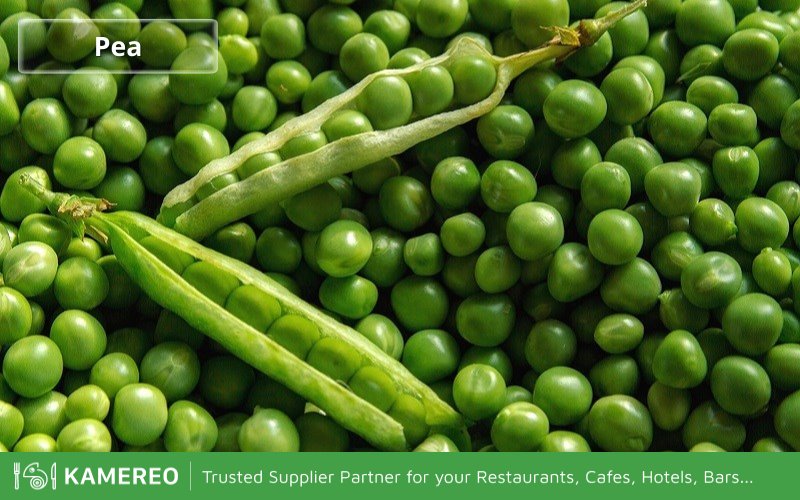
Radish
Radish, also known as sugar beets, are a unique and colorful root vegetable. This type of tuber offers many health benefits when added to the daily diet. Each cup of radish provides 4g of fiber and over 10% of the necessary potassium for the body each day. Moreover, radish contain betalain, a type of antioxidant compound that helps reduce the risk of heart disease and maintain stable blood pressure.
Furthermore, athletes often consume dishes or beetroot juice as a supportive measure to enhance performance, thanks to its high nitrate content. This component is converted into nitric oxide in the body, which can support increased blood flow and improve the flexibility of blood vessels.
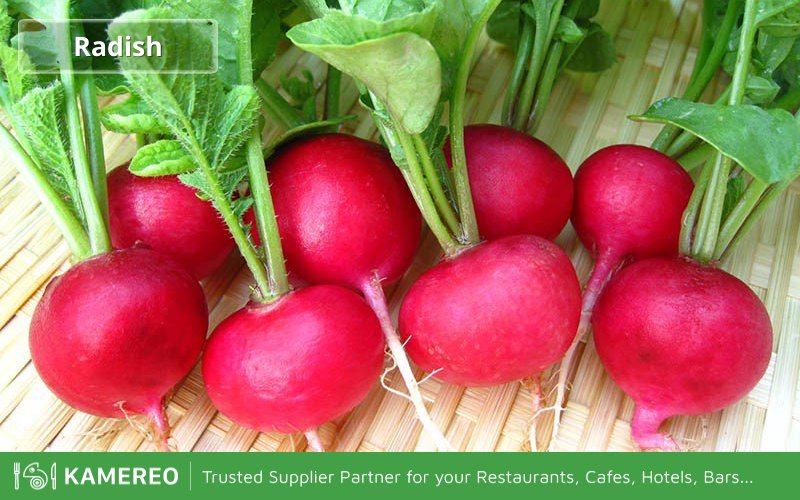
Broccoli
Broccoli is a rich source of glucosinolates and sulforaphane, which have the ability to prevent chronic diseases. In addition, small studies have indicated that broccoli sprouts may reduce inflammation, especially in people with heart disease.
Moreover, 91g of raw broccoli contains a variety of nutrients, including 77% of the daily nutritional value (DV) for vitamin K, 90% DV for vitamin C, as well as significant amounts of folate, manganese, and potassium. This makes broccoli an important food in the diet to provide essential nutrients for health.
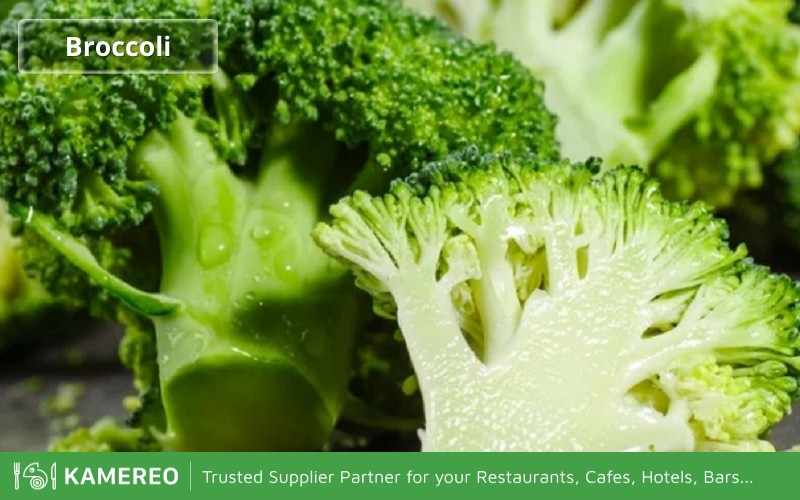
Garlic
Garlic contains allicin, a compound that can help stabilize blood sugar and cardiovascular health. Numerous studies have shown that consuming garlic plays a role in reducing neutral fat and cholesterol levels. In particular, allicin also has a positive effect on cardiovascular risk factors such as high blood pressure and arterial plaque.
However, it is important to note that the effectiveness of garlic may vary depending on dosage, processing methods, and individual constitution. If you want to change your diet, consult a nutrition expert for effective advice.
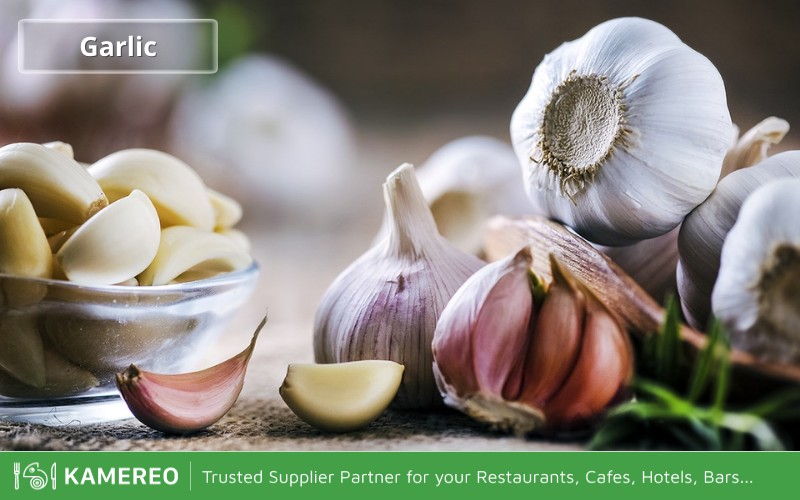
Kale
According to Healthline, kale is known for its high nutrient and antioxidant content (2). In just 21g of kale, the body can absorb many minerals such as potassium, calcium, copper, as well as vitamins A, B, C, and K.
In particular, drinking kale juice can help lower blood pressure, cholesterol, and stabilize blood sugar levels. These benefits make kale an essential part of a healthy diet and can support cardiovascular health.
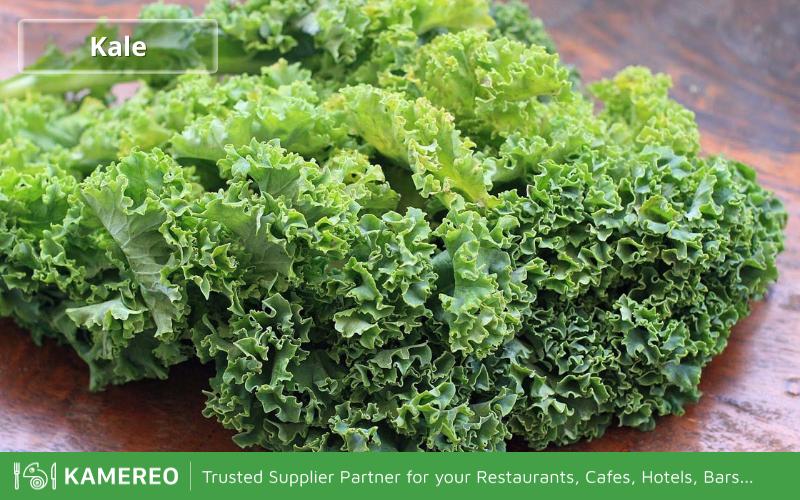
Asparagus
Asparagus is an incredibly rich source of vitamins and minerals. This type of food is a source of selenium, vitamin K, thiamine, and riboflavin.
In 90g of this food when cooked, you can receive folate equivalent to 33% of the daily nutritional value (DV). This substance is an important type of vitamin B during pregnancy to support the development of the baby’s neural tube. Therefore, ensuring that the body receives enough folate can contribute to preventing diseases and supporting the prevention of neural tube defects during pregnancy.
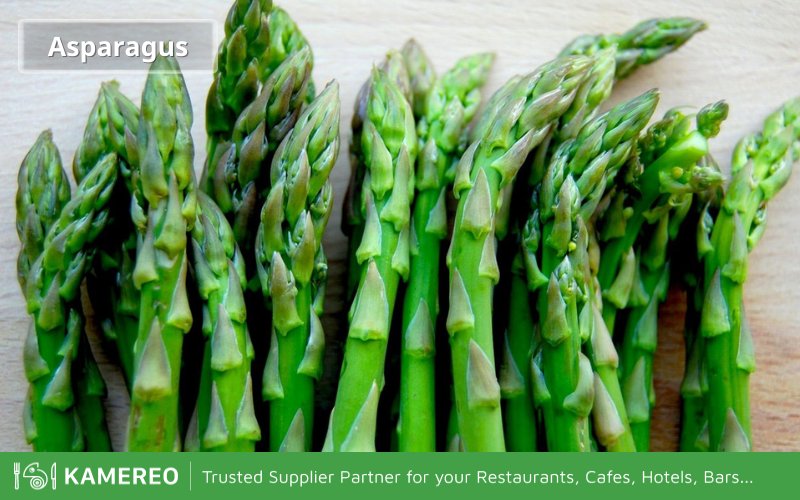
Sweet Potato
Sweet potatoes are a sweet-tasting tuber that contains about 4g of fiber, 2g of protein, along with a significant amount of potassium, manganese, vitamin B6, and C. In particular, this tuber is a source of beta-carotene – a substance that can be converted into vitamin A in the body. In fact, one sweet potato can provide up to 132% of the daily nutritional value (DV) for this vitamin.
According to a review by Healthline based on 23 research results, consuming sweet potatoes can help regulate blood sugar and cholesterol levels. This makes sweet potatoes an essential part of a healthy diet and can support cardiovascular health.
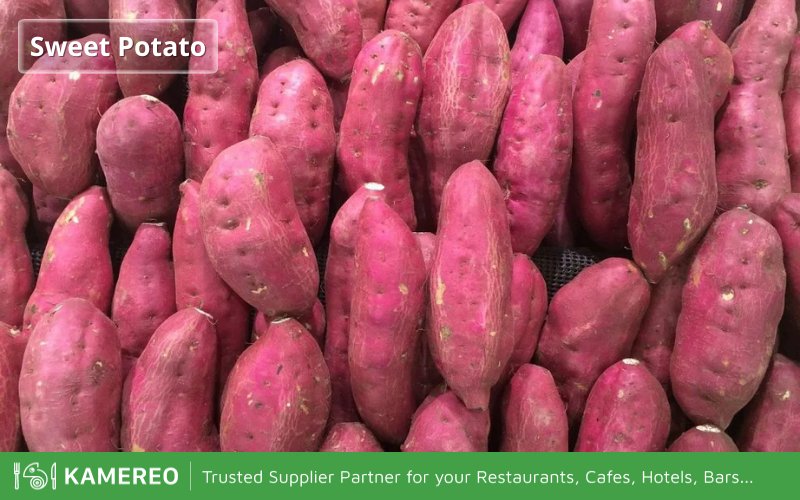
Mushrooms
Mushrooms have low calorie, fat, and sodium content, but they provide rich nutrients and compounds beneficial for health. Accordingly, this food contains fiber, potassium, and various B vitamins such as niacin (vitamin B3), riboflavin (vitamin B2), and pantothenic acid (vitamin B5).
Stark experts say that when mushrooms are exposed to UV rays during growth, they become a rich source of vitamin D, contributing to the absorption of calcium and supporting bone health.
In addition, mushrooms also contain ergothioneine – a type of amino acid that acts as an antioxidant, helping reduce the risk of cancer. All of these make mushrooms an important nutritional choice in a healthy diet.
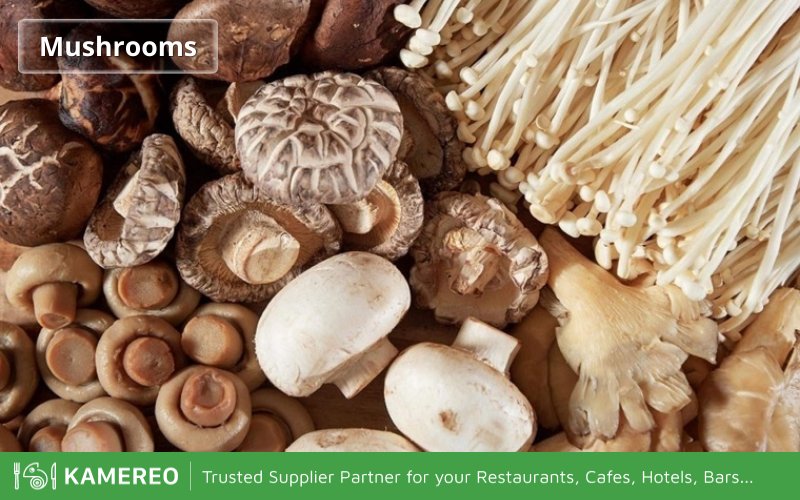
Read more:
- Discover Vietnamese Avocados with Kamereo
- Top 10 Protein-Rich Foods for Boosting Physical Strength
- Summarizing the common types of yogurt widely used in the market
Above are various types of nutritious fruits and vegetables recommended by experts to be added to the diet. These foods provide the necessary nutrients for human life. If you need to buy fresh fruits and vegetables in large quantities for business purposes, contact Kamereo at the hotline 0812 46 37 27 to get advice from specialists. Don’t forget to follow the Product consulting section for more interesting information!



